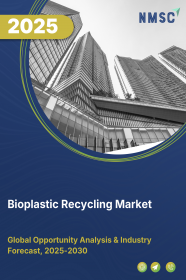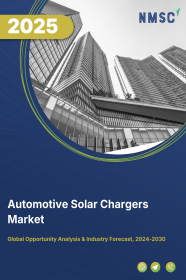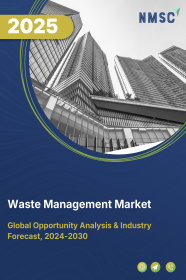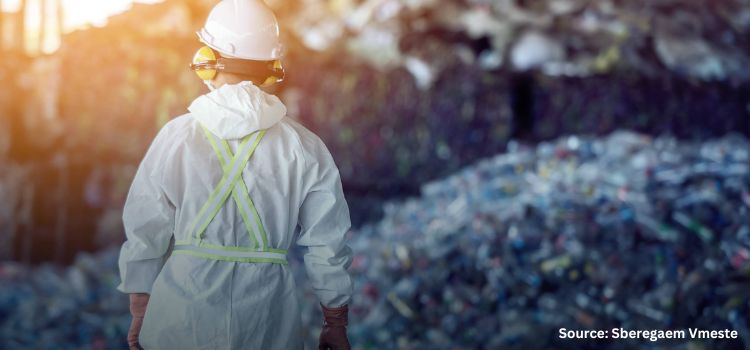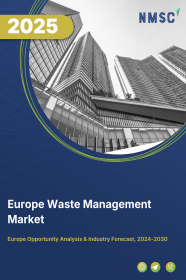
Europe Waste Management Market by Waste Type (Municipal Solid Waste (MSW) or Household, Industrial, and Commercial) and by Waste Treatment (Composting, Incineration, Controlled Landfill, Uncontrolled Landfill, Sanitary Landfill, Open Dump, and Recycling)– Opportunity Analysis and Industry Forecast, 2024 – 2030
Industry: Energy & Power | Publish Date: 17-Feb-2025 | No of Pages: 81 | No. of Tables: 105 | No. of Figures: 70 | Format: PDF | Report Code : EP1244
US Tariff Impact on Europe Waste Management Market
Trump Tariffs Are Reshaping Global Business
Europe Waste Management Market Overview
The Europe Waste Management Market size was valued at USD 116.21 billion in 2023, and is predicted to reach USD 169.37 billion by 2030, at a CAGR of 4.5% from 2024 to 2030. Waste management involves a wide range of services and activities aimed at managing and mitigating the impact of waste generated by various sectors including residential, commercial, industrial, and healthcare.
It includes the collection, transportation, processing, recycling, and disposal of waste materials in a manner that is environmentally responsible and sustainable. The market involves the development and implementation of technologies and practices that promote waste reduction, resource recovery, and the safe handling of hazardous materials.
Key components of waste management include waste collection services, recycling facilities, waste-to-energy plants, landfill operations, and environmental consulting services. As awareness of environmental issues grows, the Europe waste management market continues to expand, driven by growing population, technological advancements, and increasing public demand for sustainable waste solutions.
Government Initiatives Propel the Waste Management Market Growth in Europe
Government initiatives in the Europe region significantly fuel the growth of the waste management market. Strategic policies and regulations aimed at enhancing waste management practices, such as increased recycling targets and waste reduction programs, drive industry expansion.
These initiatives promote the adoption of advanced waste processing technologies and encourage investments in sustainable solutions, fostering a more efficient and environmentally-friendly waste reduction strategies across the region.
Rising Waste Generation Drives Demand for Advanced Waste Management Solutions in Europe
The increase in waste generation further fuels the Europe waste management market growth. As waste volumes rise, there is a growing demand for efficient and effective waste management solutions to handle the higher volumes. This increased need drives innovation and investment in waste processing technologies, recycling systems, and waste diversion strategies, contributing to the market expansion and development.
Strict Regulatory Standards Policies Hinders the Market Expansion
The rigorous standards for waste processing, recycling, and disposal creates barriers to entry particularly for smaller and emerging players that hinders the Europe waste management market expansion.
The highly rigorous regulations governing waste processing, recycling, and disposal are designed to ensure environmental sustainability, safety, and compliance with international and regional guidelines.
However, meeting these stringent requirements involves substantial financial and operational commitments, including investment in advanced technologies, infrastructure upgrades, and specialized expertise.
The Adoption of Waste-To-Energy Technologies Creates Future Growth Opportunities in the Market
The adoption of waste-to-energy technologies such as incineration, anaerobic digestion, and gasification presents a significant growth opportunity for the Europe waste management market trends as these technologies convert waste materials into usable energy, reducing landfill dependency and contributing to sustainable energy generation.
By transforming waste into a valuable resource, e-waste management solutions promote environmental sustainability and drive industry expansion. This innovative approach aligns with global trends toward circular economy practices and offers economic benefits by generating energy from waste that creates a promising avenue for growth of the waste recycling sector in Europe.
Denmark Dominates the Europe Waste Management Market Share
The significant increase in recycling and incineration activities fuels the growth of the market in Denmark. This boost in waste processing capabilities not only enhances waste management efficiency but also supports sustainable practices that drives the demand for advanced waste management solutions in Europe.
As per the report published by European Environment Agency report 2023, the country generated more than 800 kg wastes per capita and waste collected for recycling accounted for 53.9% and waste incineration accounted for 45.2 % in 2020. This enhanced capability allows for more efficient processing and disposal of waste, reducing the environmental impact and promoting circular economy principles.
Moreover, the recent government initiatives in the country is significantly boosting the Europe waste management market demand. Policies promoting recycling, waste-to-energy technologies, and circular economy practices are further driving the sector’s growth.
Ambitious recycling targets and infrastructure investments encourage the adoption of advanced waste treatment solutions. For example, in 2020, the Danish government stated that they created a goal to remove over 80% of plastic waste from incineration plants by 2030.
The government is introducing mandatory use of ecolabels in state procurement, creating a clear framework for municipal second-hand shops. The Danish government's proactive approach fosters innovation and attracts investments, propelling the market forward.
Norway to Witness Substantial Growth in the Europe Waste Management Market Trends
The rapid urbanization in Norway is propelling the growth of the Europe waste management market. As cities expand and population density increases, the volume of the waste generated also rises that necessitates the demand for enhanced waste recycling solutions.
As per world bank group latest report, the population of Norway accounted for 5.5 million in 2023 and around 84% of the population resides in urban areas. This urban growth drives demand for advanced waste management systems and infrastructure, leading to market expansion and improved efficiency in handling municipal waste in Europe.
Moreover, government initiatives are further propelling the Europe waste management market growth. By implementing policies and regulations aimed at improving waste recycling practices, reducing waste generation, and increasing recycling rates, these initiatives create a supportive environment for market expansion.
As per the latest report published by the European Environment Agency, the Norwegian government introduced a VAT exemption on food redistributed to charities to reduce food waste and encourage food donations.
Furthermore, the government implemented a Nordic strategy for collection, sorting, reuse and recycling of textiles to increase the reuse and recycling of textiles in the Nordic region. Investments in waste infrastructure and innovative solutions driven by government programs enhance the efficiency and effectiveness of waste management systems, contributing to the overall market growth.
Competitive Landscape
The promising players operating in the Europe waste management industry includesVeolia Environment S.A., FCC Environment, Remondis AG & Co. KG, Biffa plc, ALBA Group, Urbaser, Saubermacher Dienstleistungs AG, Paprec Group, Grundon Waste Management Ltd, Envac Group, Viridor, Renewi plc, Derichebourg Environnement, Stena Recycling AB, SULO Group, Ragn-Sells Group, PreZero, EcoPartners Group, Ekoman, RGS Nordic, and others.
Europe Waste Management Market Key Segments
By Waste Type
-
Municipal Solid Waste (MSW) or Household
-
Food
-
Paper and Cardboard
-
Plastic
-
Glass
-
Metal
-
Others
-
-
Industrial
-
Manufacturing Waste
-
Construction & Demolition Waste
-
Agriculture Waste
-
Other Industrial waste
-
-
Commercial
By Waste Treatment
-
Composting
-
Incineration
-
Controlled Landfill
-
Uncontrolled Landfill
-
Sanitary Landfill
-
Open Dump
-
Recycling
By Countries
-
UK
-
Germany
-
France
-
Italy
-
Spain
-
Denmark
-
Netherlands
-
Finland
-
Sweden
-
Norway
-
Russia
Key Players
-
Veolia Environment S.A.
-
FCC Environment
-
Remondis AG & Co. KG
-
Biffa plc
-
ALBA Group
-
Urbaser
-
Saubermacher Dienstleistungs AG
-
Paprec Group
-
Grundon Waste Management Ltd
-
Envac Group
-
Viridor
-
Renewi plc
-
Derichebourg Environnement
-
Stena Recycling AB
-
SULO Group
-
Ragn-Sells Group
-
PreZero
-
EcoPartners Group
-
Ekoman
-
RGS Nordic
REPORT SCOPE AND SEGMENTATION:
|
Parameters |
Details |
|
Market Size Value in 2023 |
USD 116.21 billion |
|
Revenue Forecast in 2030 |
USD 169.37 billion |
|
Value Growth Rate |
CAGR of 4.5% from 2024 to 2030 |
|
Analysis Period |
2023–2030 |
|
Base Year Considered |
2023 |
|
Forecast Period |
2024–2030 |
|
Market Size Estimation |
Billion (USD) |
|
Growth Factors |
|
|
Companies Profiled |
10 |
|
Countries Covered |
10 |
|
Customization Scope |
Free customization (equivalent up to 80 working hours of analysts) after purchase. Addition or alteration to country, regional, and segment scope. |
|
Pricing and Purchase Options |
Avail customized purchase options to meet your exact research needs. |

















 Speak to Our Analyst
Speak to Our Analyst



